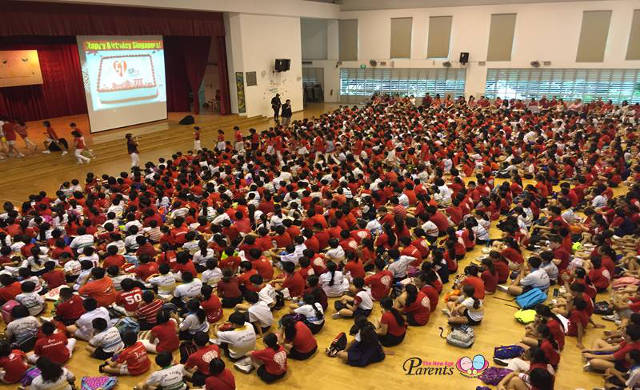The PSLE changes the pace of life in Singapore every year. Everything becomes PSLE – the news, conversations, day to day routines, sleeping even, all punctuated by this exam. As a parent, there is real pressure to engage completely with the process. Here are tips that every family can engage with.
5 Tips To Prepare For PSLE English:
1. Targeted Practice
Practice is essential, but make it targeted. With the exam date just around the corner, make sure your child is focussing on areas that will actually make a difference. It really is too late to learn new skills and strategies for exam tasks that they score badly on.
Instead, look at tasks that they are only scoring half or so in. These suggest that there is a good knowledge base to make it stronger. Focussing on these is more likely to lead to improvements in grades.
To do this, have honest discussions with your child about which tasks to target and which to drop or at least, spend less time on. Additionally, it will reduce stress on your child if they are not focussing on tasks that they simply do not understand.
⇒ Related Read: How to foster good study habits in kids
2. Exam Skills vs Language
In the weeks before the big day, your child’s language skills are as good as they will get for the exam. Don’t force them to memorise word lists and model answers.
Instead, whenever they do tasks from practice books, insist on time limits, buy an egg-timer or use the countdown timer on their phones. This improves on time-management as well as breaks up the revision into more manageable chunks – set a time limit, do the activity, check the answers, reflect on answers, rest and then repeat. You might consider attempting one or two to appreciate the experience!
3. Read, Read, Read
Time spent reading is time spent learning how to write. Even at this late stage, encouraging your children to read widely can have a positive impact if you help them reflect on what they read. There are lots of model texts out there covering every task in Paper 1.
Reading them together and reflecting on why they are good e.g. how is the narrative made interesting? What makes the report clear? Discussing ideas together augments your child’s understanding. Remember, this is not the same as memorizing!
⇒ Related Read: How to encourage boys to read
4. Review and Reflect on Those Old Compositions
By now your child will have a fair stash of ‘old’ compositions. Retrieve them from the bottom of school bags and from under desks! They are gold mines for last minute revision. On one level, they will contain errors that your child makes regularly e.g. simple past. They are also great for helping your child think about things that will improve their own writing.
Ask them about sentences they wrote that they were happy with and find out why. Which ones they might change and why? How might they make their pieces more exciting or clearer? It is good to check that they have understood and reflected on the feedback that their teacher gave.
As a parent, it is really important to remember that it can be hard for your child to show you their work, especially if it is a ‘sea of red pen’! Don’t panic or be judgemental, the value of this lies in talking to your child about what they would do differently for the exam.
5. Embrace the Good
Finally, the important holistic stuff that every parent can do! Whether you have the academic skills to be more hands-on during the final revision period or not, doing your best to ensure that your child feels as confident as they can be on the day of the exam is beneficial.
Children who enter an exam hall only thinking of their weaknesses are already psychologically on the back foot. Every child has something that they can do better relative to other tasks. Take the time to talk to your child and find out what these are. Looking beyond the exam, knowing your child’s strengths in other areas and reminding them will help with confidence.
This article is contributed by Charlie Spiller, Head, Primary Courses, British Council.
* * * * *
Like what you see here? Get parenting tips and stories straight to your inbox! Join our mailing list here.
Want to be heard 👂 and seen 👀 by over 100,000 parents in Singapore? We can help! Leave your contact here and we’ll be in touch.






























































Leave a Comment: